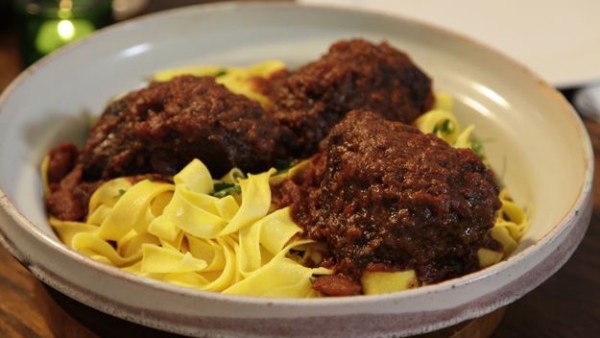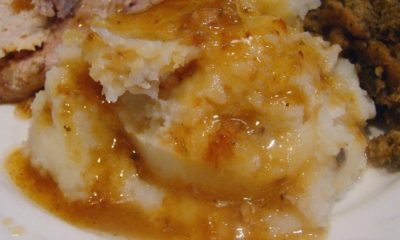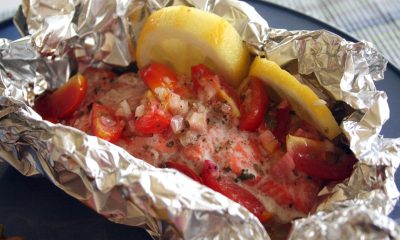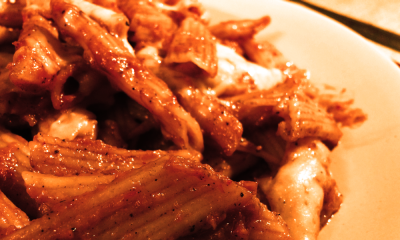Food Blogs
SLOW-BRAISED BEEF CHEEKS RECIPE
Every Italian family has their own version of the famous tomato and meat ragú, typically made with rabbit or wild boar. I’m using ox cheeks instead, which are cheap but flavoursome and well worthy of any dinner table. Don’t skimp on that cooking time – it’s the secret of the richly complex sauce which elevates this dish from its humble bolognaise cousin.

| Servings |
MetricUS Imperial
|
Ingredients
- olive oil for frying
- 1 kg beef cheeks or stewing beef
- 1 onion peeled and roughly diced
- 2 garlic cloves peeled and roughly crushed
- 1 Bay Leaf
- 400 ml red wine
- 400 g tin chopped tomatoes
- 500 ml beef stock
- 500 g dried pappardelle
- Handful of parsley finely chopped
- Sea salt and freshly ground black pepper
Ingredients
|

|
Instructions
- Preheat the oven to 150°C/Gas 2.
- Place a heavy-based hob-proof casserole dish over a high heat and add a dash of oil. Season the beef on both sides and brown all over in the hot pan. Transfer to a plate and set aside.
- Add the onion, garlic and bay leaf to the empty pan and cook for a couple of minutes, until softened and colouring around the edges.
- Return the meat to the pan. Add the wine to deglaze the pan, scraping up the bits from the bottom. Stir in the tomatoes and the beef stock, season with a little salt and pepper and bring to a simmer.
- Cover the pan with a lid slightly askew to allow some steam to escape, and place in the oven for 3½–4 hours, until the meat is completely tender and the sauce rich and thick. Check the liquid level after 2 hours, topping it up with some water if necessary.
- Cook the pappardelle in boiling salted water according to the packet instructions, until al dente. Drain and drizzle with olive oil and season with salt and pepper.
- Place a ladelful of sauce in the bottom of a serving dish and top with the pasta. Finish with the beef, shredded if you like, in the sauce, and a sprinkling of parsley.
HOW TO COOK PASTA
- Always use well-salted water to cook pasta because it is impossible to season later. The Italians always use 10g (2 teaspoons) salt for every litre of water. Adding olive oil to the cooking water is helpful, but if you really want to ensure that your pasta doesn’t stick as it cooks, use plenty of water and twist the pan from side to side a few times to get the pasta swirling around just after you’ve put it in.




















